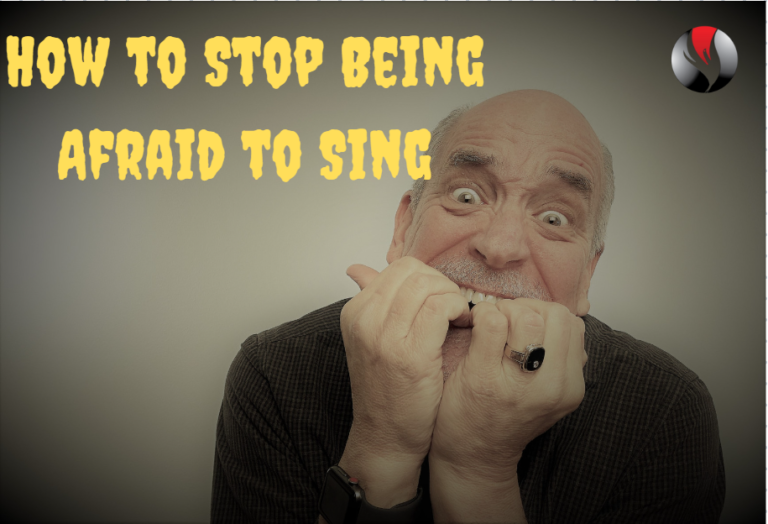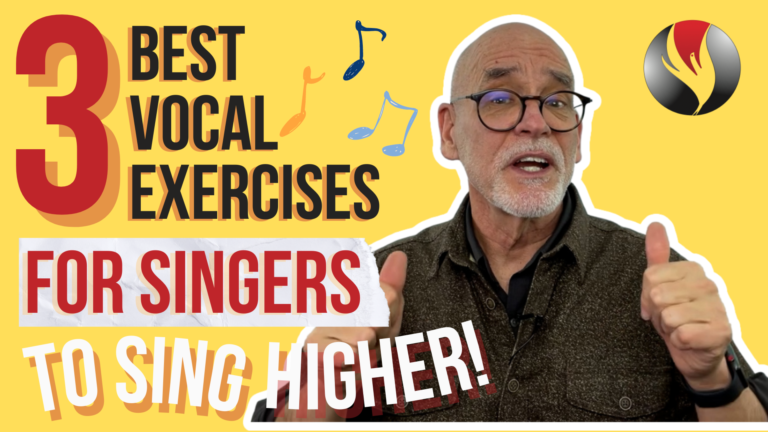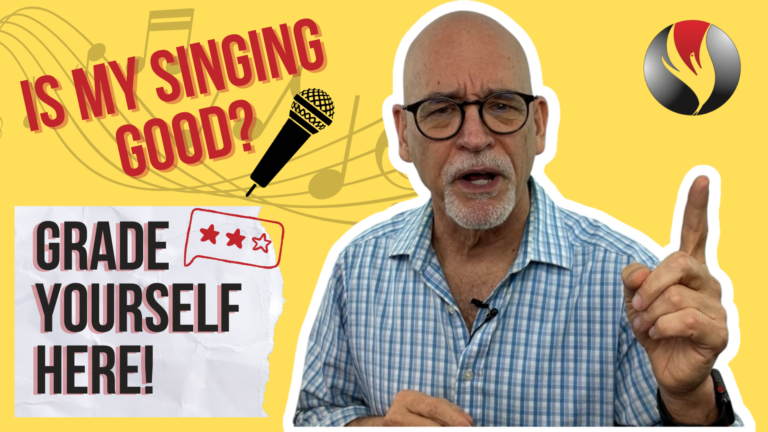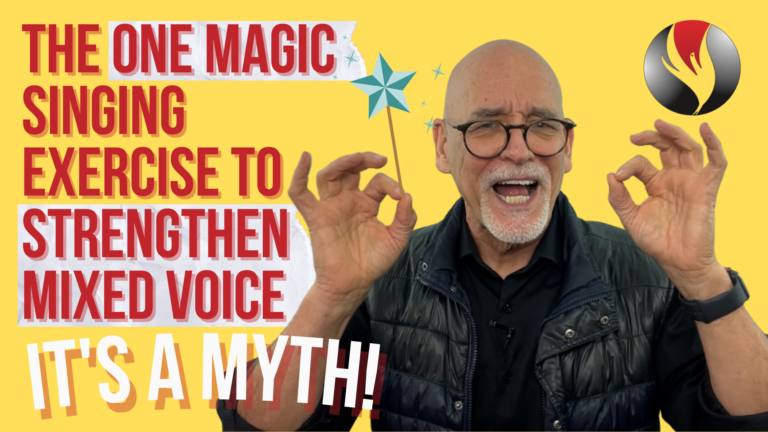This is not about stage fright, shyness or being tone deaf. This is about fear and singing.
This is for everyone who doesn’t mind being up in front of everyone, who’s not nervous speaking to groups, who maybe even does some acting or sings in choirs or ensembles. Who’s comfortable being front and center.
For all of you who are like this, but fear singing solos, like I used to, this is for you.
Fear and Singing: Top 5 Reasons for Fearing to Sing Solos
Why do we fear singing? Why do we get fearful?
Here are 5 reasons for being afraid to sing solos.
- You’ve had lessons, but still break, strain or have to sing light or falsetto on high notes.
- You haven’t been born with a special gift others seem to have
- You’ve had a singing “fail”
- A friend or loved one has criticized or made fun of your singing
- You don’t like the sound of your voice
Each of these reasons can be emotionally devastating. I talked about the first 2, in the previous episode. Please watch Episode 70.
Let’s talk about the rest of these reasons. They happened to me all at the same time.
I had a singing fail when I was 19 years old that caused me to experience a singing confidence crisis for the next 24 years.
Between ages 19 and 21, I served as a missionary for the Church of Jesus Christ of Latter-Day Saints in Southern California. Throughout these two years I was assigned to work with 12 different missionary companions in various locations. During my first Christmas as a missionary, I was asked to sing a solo in church during a Sunday morning service in Santa Barbara, CA.
The evening before I sang my fellow missionary companion had been teasing me about my practicing. I retorted, “The righteous shall be persecuted”. He responded, “You mean like the ones having to listen to you?”

I was worried his comment would come true. And it did.
I was horrible. I knew that I was flat on the higher notes of the song. I felt really bad about my performance. The worse part was I felt like I made the congregation squirm in their seats…like they were embarrassed for me.
I resolved never to sing a solo again. This was a major singing fail, my missionary companion made fun of me and I knew I sounded flat and pitchy.
Can you relate? I never wanted to experience this again. I was embarrassed and disappointed.
To make matters worst, I had been a music major my first year of college. Singing and performing was my first love. Sadly, I changed my major when I returned to school.
Every time I thought about this I felt:
- Embarrassment
- Discouragement
- Fear (Never wanted to go through that again)
- Sadness (I really wanted to sing well)
- Frustration (I felt like I just wasn’t capable of great singing)
Have you ever felt similar emotions about your singing?
So, how do we overcome these emotional roadblocks?
- Study with someone who can teach you to sing from chest voice, through the bridge of your voice, into your head voice with connected vocal cords without reaching, breaking, breathiness or falsetto. They should be able to do this themselves. This is what changed my singing and my life.
- The truth is you don’t need a special gift to learn how to do this. You will have to work at it, but with the right teacher, you should progress rapidly enough to give you real hope and understanding of your true potential.
- Whether you’ve had a major singing fail or not, get with a good teacher as I’ve described. Also, realize that even great singers and performers have major “fails” along the way. It’s a part of life. It’s a part of live performing. When you fall off the horse, get back on and keep riding.
- When someone criticizes your voice, don’t worry. Most people won’t like your voice! Lady Ga Ga has a great voice. As of this video recording, she only has 59 million twitter followers-”monsters”. That’s only .83% of the population of the earth. Out of 1000, that’s only 8 people. The important thing to know is there will be people who will love your voice. You are singing for them!
- Many singers don’t like the sound of their voices at first. As you learn to sing from chest to head and back again without straining, cracking, breathiness or falsetto, your tone quality will also improve. You will grow to like your voice.
A great place to get help with your voice is PowerToSing.com. Take the vocal test, which I call the PowerTest. Take the quiz and discover your vocal type. Your vocal type is what you tend to do when you sing.
Go to the Knowledge Center and watch the videos about your vocal type. There you can download the free exercises and start working to improve your voice immediately.
Don’t let fear stand in your way of developing your singing voice and sharing your love and passion for singing.
I’m Chuck Gilmore with Power To Sing. You can sing higher with beauty, confidence and power.
I’ll see you inside the next video.










Responses